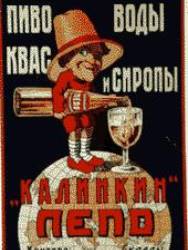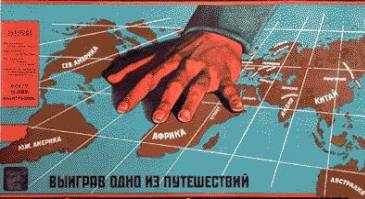|
|
|
|
Summary After 3 years of the policies historians call 'War Communism', a mutiny at the Kronstadt naval base scared the Bolsheviks, and they realised that they were pressing the people too hard. Lenin – much to the annoyance of hard-line Communists – brought in the New Economic Policy, which allowed some free enterprise, and concentrated on stimulating production.
Source AA Strategic Retreat In substance, our New Economic Policy signifies that we have started a strategical retreat. We said in effect: “Before we are completely routed, let us retreat and reorganise everything"... We have sustained a very severe defeat on the economic front... We thought that production and distribution would go on at communist bidding in a country with a declassed proletariat. We must change that now, or we shall be unable to make the proletariat understand this process of transition. No such problems have ever arisen in history before. We tried to solve this problem straight out, by a frontal attack, as it were, but we suffered defeat... A cultural problem cannot be solved as quickly as political and military problems. It it is possible to achieve a political victory within a few weeks. It is possible to obtain victory in war in a few months. But it is impossible to achieve a cultural victory in such a short time. By its very nature it requires a longer period; and we must plan our work accordingly, and display the maximum of perseverance, persistence and method... We must not only abolish illiteracy and bribery, but we must get the people really to accept our propaganda, our guidance and our pamphlets, so that the result may be an improvement in the national economy. Lenin, speaking at the Congress Of Political Education Departments October, 1921.
|
Going DeeperThe following links will help you widen your knowledge: Old Bitesize - simple intro (pdf) How far do you agree that the Bolshevik survival in power 1918-24 was even more surprising than their seizure of power in 1917? - essay by Prof Christopher Read
YouTube Clear, basic account - History Pod
So: Who was more important: Lenin or Trotsky?
|
A. Causes of the NEP
In 1920 the peasants in the village of Khitrovo (about 300 miles south of Moscow) beat up an army requisitioning unit and marched on the local capital, Tambov. Repulsed by machine gun fire, they formed the 'Union of Working Peasants', led by Social Revolutionaries who opposed the Bolsheviks. They demanded free trade, an end to the Prodrazverstka, and an end to the CHEKA, and waged an underground war against the Bolsheviks. Peasant revolts spread across the country – during the next year, 200 grain collectors were assassinated. The rebellion was brutally suppressed; 100,000 people were sent to kontslargerya (containment camps), villages were burned to the ground, 15,000 people were executed. Nevertheless, Lenin in a pamphlet of April 1921 wrote that: "the political situation in the spring of 1921 was such that immediate, very resolute and urgent measures had to be taken to improve the condition of the peasants and to increase their productive forces".
|
Source BThe Kronstadt Mutiny was a warning that Lenin could not ignore. The Mutiny gave a focus to the anger of workers and peasants, who felt disappointed by the Bolsheviks. Lenin admitted the Bolsheviks were only just hanging on to power. He told the Tenth Party Congress meeting that the peasant revolts and the Kronstadt Mutiny were more dangerous to the Bolsheviks than the Whites were. The people were no longer willing to suffer in the hope of a better future. The Bolsheviks’ use of terror and military force was no longer enough to keep control. M Sixsmith, Russia (2012)
Consider:Study Source A. In the speech, Lenin described the NEP as a 'retreat'after a 'defeat'. Use your wider knowledge of the causes of the NEP to explain what he meant.
|
B. Lenin's New Economic Policy
National freedoms
Enterprise [BASHER]'War Communism' was dismantled:
Political Oppression
|
Source C
A 1925 advert for ‘Kalenkin’ beers, sodas and syrups.
Source D
A poster: ‘You will be able to go anywhere in the world if you win the state lottery’.
|
Source EEveryone is so infinitely better off that present conditions seem paradise by comparison... 250,000 private traders have migrated to Moscow since the NEP began. They crowd the restaurants where it costs $25 a head for dinner with French wine ... and lose a thousand or so an evening at cards without turning a hair. Walter Duranty, I Write As I Please (1935)
|
Source Fhe NEP restored some prosperity to Russia . But to many of us this prosperity was distasteful... We felt ourselves sinking into the bog, paralysed, corrupted... There was gambling, drunkenness, and all the filth of former times. Classes were reborn in front of our very eyes. Victor Serge, From Lenin to Stalin (1937)
|
Source GThere wasn’t any food in the country. We were down to a little bread each. Then suddenly they started the NEP. Cafes opened. Factories went back into private hands. It was Capitalism. In my eyes it was the very thing I had been fighting against... Most people supported Lenin, others said he was wrong, and many tore up their party membership cards. Nikolai Izatchik, a Bolshevik, remembering the NEP in 1992.
|
C. Results
HOWEVER the impression of prosperity was false and not shared by all (see Source H):
Consider:1. Using Sources C-E and your wider knowledge, make a list of the differences between the NEP and War Communism. 2. List all the ways 'War Communism' was a disaster – so why did some people still support it (Sources F and G)? 3. How does Lenin's interpretation of th NEP in Source A differ from Walter Duranty's in Source I? 4. "They opened the markets to some fancy consumer goods, and the materialistic masses were seduced back into support." How true is this deprecatory opinion of the NEP? 5 Write an 'on-the-one-hand/on-the-other-hand' essay debating whether, overall, the Bolsheviks were successful under Lenin, 1917-24? 6 Who was more important for the survival of the Russian Revolution, Lenin or Trotsky?
|
Source HShops and stores sprang up overnight. mysteriously stacked with delicacies Russia had not seen for years. Large quantities of butter. cheese and meat were displayed for sale; pastry, rare fruit, and sweets of every variety were to be purchased. Men, women and children with pinched faces and hungry eyes stood about gazing into the windows and discussing the great miracle: what was but yesterday considered a heinous offence was now flaunted before them in an open and legal manner. Emma Goldman, an anarchist and opponent of the Bolskeviks, remembering the NEP in 1924.
Source IA contemporary interpretation of the NEP Its waves, thick with greed and eagerness to tear from life the joys which had been denied so long, swept over Moscow and the rest of Russia like a flood which the Bolsheviks were powerless to check. They stood aghast before this Frankenstein of their own creation, which was changing with startling velocity laws and values they had accepted as immutable. Their leaders watched the flood and let it roll, serenely conscious that it was bringing a new silt of energy and growth to Russia’s frozen soil. Others, less far-sighted, strove to resist the current and were engulfed. Some plunged into it headlong and swam lustily to capture the spoils that floated on its surface. Walter Duranty, I Write As I Please (1935)
|
|
|
|
|
Spotted an error on this page? Broken link? Anything missing? Let me know. |
|

